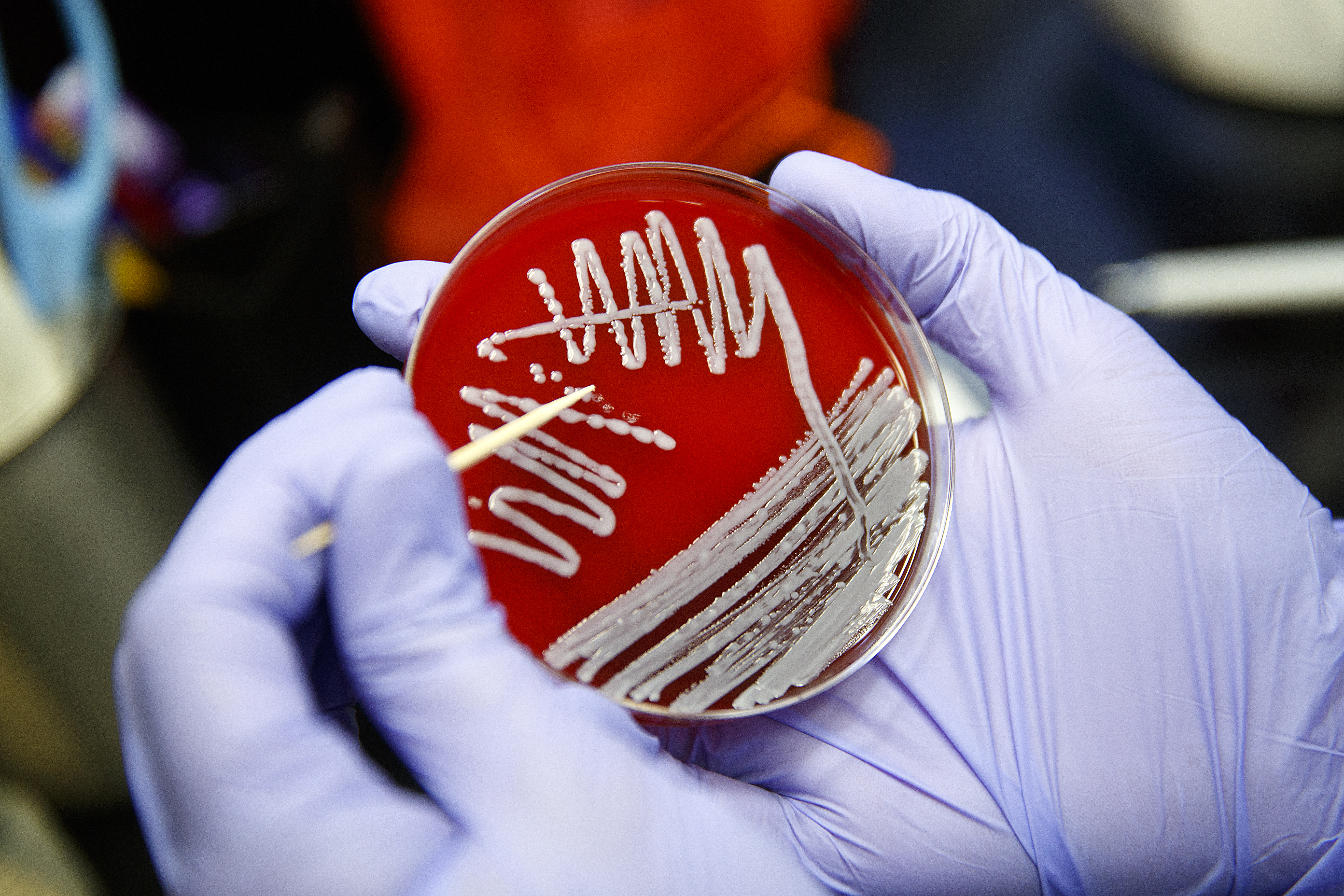Microbiology related graduate program and research opportunities are available through several different departments and colleges.
Graduate programs that incorporate microbiology related laboratory research are available through the following departments:
- School of Biological Sciences
- Plant Pathology
- Center for Plant Science Innovation
- Biochemistry
- School of Veterinary and Biomedical Sciences
- Food Science and Technology
Graduate Degrees with specialization in Microbiology:
Master of Science Degree (MS) which usually takes 2 to 3 years to finish. A Masters Degree is a combination of course work and research. The research completed is generally equivalent to one article in a scientific journal. A Masters Degree enables you to work in research labs in both industry and academics, usually under the supervision of a more experienced scientist.
Doctor of Philosophy (PhD), which normally takes 5 to 6 years to achieve. A PhD Degree also consists of classwork and research, with an emphasis on research. Someone obtaining a PhD is expected to become an independent scientist and to conduct research equivalent to 2 to 3 journal articles. A PhD degree is for someone that is interested in running their own research program. It is also possible to get a MS first and then a PhD, with a total time commitment of 5 to 6 years.
For more information on Graduate Training in Microbiology and Molecular Biology, click here
We encourage students with majors in Biological Sciences, Biochemistry, Chemistry, Computer Science, Math or Engineering to apply.
Why should I consider Microbiology at the University of Nebraska-Lincoln?
The University of Nebraska has excellent faculty that are enthusiastically involved in student mentoring and research. In 2007 The Scientist, named the University of Nebraska-Lincoln the 8th Best Place to Work in Academia. We also have world-class resources for Microbiology research. For instance the Center for Biotechnology provides access to core research facilities for Genomics, Structural Biology, Flow Spectrometry, Mass Spectrometry, Plant Transformation, Bioinformatics, and Microscopy. Our Microbiology curriculum is designed to provide all of the background knowledge necessary for you to succeed. We also have several seminar series on campus that bring in world-renown scientists to present their research. Students in our program are supported on fellowships which are sufficient to cover your living expenses.
Rotation and Traineeship Opportunities:
Students entering the Microbiology graduate program are encouraged to participate in three laboratory rotations. Each rotation lasts approximately 5 weeks and are completed during your first semester. The lab rotations let you experience 3 different research programs before selecting a lab to conduct your degree research.
The Student's Home Department and Advisory Committee:
Selection of a laboratory for thesis research determines the home department from which the student will receive their degree. A student must fulfill all requirements from their home department. A student, upon identifying a home laboratory, will be select a graduate advisory committee. The committee will guide the student through completion of his or her degree. This supervisory committee also helps the student design his or her own research program and make course selection. We strongly recommend all students to participate in the Microbiology Journal Club, Microbiology Graduate Seminar Series, and the Annual UNL Microbiology Meeting.
